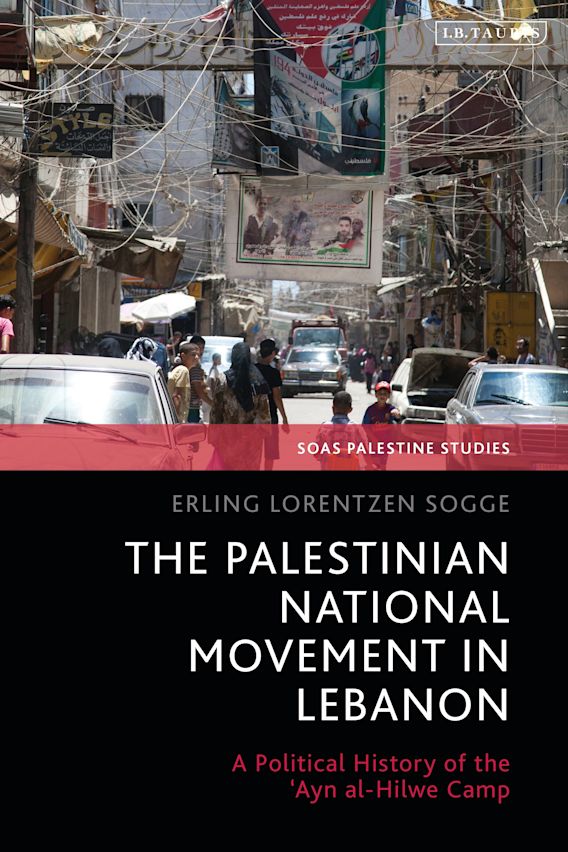Academic interests:
My research revolves around the Palestinian national movement, the socio-political life of refugee camps, and militant non-state actors in Palestine and Lebanon. In 2021, I published the book The Palestinian National Movement in Lebanon: A Political History of the 'Ayn al-Hilwe Camp, which builds on extensive fieldwork in refugee camps in Lebanon (and the West Bank). Between 2019-22, I was a part of the project called Rebel Governance in the Middle East which explored the dynamic between rebel groups and kinship groups in different areas of the Middle East (and Africa), and was headed by Dag Tuastad, which recently resulted in a special issue. Since December 2022, I have worked as a senior lecturer in Middle East Studies (including Arabic language) at the Department of Culture Studies and Oriental Languages (IKOS).
Teaching and supervision:
This fall, I will be teaching the following courses:
MØNA2504 – Culture and society in the Middle East
ARA 1030 – Grammar lectures /Arabic C
ARA 1010 - Grammar lectures /Arabic A
I have previously taught, or taken part in teaching:
EXFAC03-MESA – Exfac for Midtøstenstudier
ARA 1020 – Grammar lectures /Arabic B
ARA 3010 – Seminars / Arabic E
MES4000 – Theory, Methodology and Project Description in Middle East- and South Asia Studies
MØNA3000 – Bacheloroppgave i Midtøstenstudier
I have supervised the following theses:
Performing Statehood: The Palestinian Authority’s Management of the COVID19 Pandemic in the West Bank
Students Taking to the Streets: Mobilizing for a Secular Lebanon (as second supervisor)
Background and education:
I was awarded my PhD in Middle East Studies at IKOS / The University of Oslo in 2018, where I also completed my masters’ thesis in 2014. I have studied Arabic language, among other places, at the University of Damascus (2010) and Institut français du Proche-Orient (Ifpo) in Beirut (2011). I have been a guest researcher at The American University of Beirut (AUB) (2015-16) and An-Najah National University in Nablus, Palestine
Appointments:
Co-editor in chief Babylon - Nordic Journal of Middle East Studies (2017-2019)
Erling Lorentzen Sogge
Publications
-
Tuastad, Dag Henrik; Sogge, Erling Lorentzen & Lia, Brynjar (2022). Rebel governance and kinship groups in the Middle East and Africa. Third World Thematics: A TWQ Journal. ISSN 2380-2014. 6(1-3), p. 1–11. doi: 10.1080/23802014.2022.2152862.
-
Sogge, Erling Lorentzen (2022). The factionalization of Palestinian customary justice: sulh politics in the Balata refugee camp. Third World Thematics: A TWQ Journal. ISSN 2380-2014. 6(1-3), p. 105–122. doi: 10.1080/23802014.2022.2089364. Full text in Research Archive
-
Sogge, Erling Lorentzen (2019). "Du stinkar også". Ungdomsopprør og protestrørsler i dei palestinske leirane i Libanon. Babylon - Nordisk tidsskrift for Midtøstenstudier. ISSN 1503-5727. p. 28–43. doi: 10.5617/ba.7057. Full text in Research Archive
-
Sogge, Erling Lorentzen (2015). Om utviklinga av militant islamisme i den palestinske flyktningeleiren Ain al-Hilwe : frå global jihad til lokalpolitikk. Babylon - Nordisk tidsskrift for Midtøstenstudier. ISSN 1503-5727. 13(1/2), p. 34–45. doi: 10.5617/ba.4183.
-
Sogge, Erling Lorentzen (2021). The Palestinian National Movement in Lebanon: A Political History of the 'Ayn al-Hilwe Camp. I.B. Tauris. ISBN 978-0-7556-0283-4. 272 p.
-
Sogge, Erling Lorentzen (2023). What is Palestinian Islamic Jihad in Lebanon? Fighters shed light on role in Gaza war. [Newspaper]. The National.
-
Sogge, Erling Lorentzen (2023). Drap kan sette fyr på opprøret. [Newspaper]. Klassekampen. Show summary
-
Sogge, Erling Lorentzen (2023). Arresterer palestinere i hopetall. [Newspaper]. Dagbladet. Show summary
-
Sogge, Erling Lorentzen (2023). Lebanon: What if the War Escalates? [Journal]. ISPI - Italian Institute for International Political Studies. Show summary
-
Sogge, Erling Lorentzen (2023). What's behind the fighting in Lebanon's Ain al-Hilweh Palestinian refugee camp? [Newspaper]. The New Arab. Show summary
-
Sogge, Erling Lorentzen (2023). Why dismantling Hamas won't end Palestinian armed resistance. [Newspaper]. The New Arab. Show summary
-
Sogge, Erling Lorentzen (2023). NRK Urix: På Innsiden av Gaza og Vestbredden. [TV]. NRK.
-
Sogge, Erling Lorentzen (2023). NRK Nyhetsmorgen kl 08.15 (Israel/Palestina). [Radio]. NRK.
-
Sogge, Erling Lorentzen (2023). NRK Nyheter kl 09.00 (Israel/Palestina). [TV]. NRK.
-
Sogge, Erling Lorentzen (2023). Studio 2: Hvem er palestinerne i israelske fengsler? [Radio]. NRK.
-
Neumann, Julia & Sogge, Erling Lorentzen (2023). Nahostforscher zur Hamas im Libanon: Hamas ist mutiger geworden. [Newspaper]. TAZ (Die Tageszeitung).
-
Jensehaugen, Jørgen & Sogge, Erling Lorentzen (2021). The Palestinian elections that weren't. The Loop. Show summary
-
Sogge, Erling Lorentzen (2020). Palestinian Refugee First Responders Rush to Aid Beirut. Middle East Report. ISSN 0899-2851. Show summary
-
Nordenson, Jon; Dølerud, Magnus & Sogge, Erling Lorentzen (2019). En ny kurs for Libanon? Babylon - Nordisk tidsskrift for Midtøstenstudier. ISSN 1503-5727. 1, p. 52–57.
-
Sogge, Erling Lorentzen (2019). The Youth of Balata: A Generation of Hopelessness. Jadaliyya. Show summary
-
Maktabi, Rania; Skare, Erik & Sogge, Erling Lorentzen (2018). Forord som redaktør for spesialnummer av Babylon - Nordisk tidsskrift for Midtøstenstudier: "Stat, statsborgerskap og territorialitet" - Festskrift for Nils A. Butenschøn 70 år. Babylon - Nordisk tidsskrift for Midtøstenstudier. ISSN 1503-5727.
-
Janmyr, Maja; Sogge, Erling Lorentzen; Jensehaugen, Jørgen & Berg, Kjersti Gravelsæter (2018). Trump straffer de svakeste palestinerne. Dagbladet. ISSN 0805-3766.
-
Sogge, Erling Lorentzen (2018). Ein palestinar i det libanesiske parlamentet? Eit intervju med aktivisten Manal Kortam. Babylon - Nordisk tidsskrift for Midtøstenstudier. ISSN 1503-5727. p. 62–67.
-
Sogge, Erling Lorentzen (2017). Managing Security Webs in the Palestinian Refugee Camp of Ain al-Hilweh. Middle East Report. ISSN 0899-2851. 47(4), p. 14–17.
-
Gade, Tine & Sogge, Erling Lorentzen (2016). Libanon på en knivsegg. nrk.no/ytring.
-
Sogge, Erling Lorentzen (2012). Den palestinske aktivisten Ahed Tamimi er sett fri. [Internet]. NRK.no. Show summary
-
Anstorp, Henrik Buljo; Tuastad, Dag Henrik & Sogge, Erling Lorentzen (2020). Students Taking to the Streets: Mobilizing for a Secular Lebanon. Universitetet i Oslo.
-
Sogge, Erling Lorentzen (2018). No one can Rule Us. Politics of exile in the Refugee camp ‘Ayn Al-Hilwe, Capital of the Palestinian Diaspora (1993-2017). 07 Gruppen. Show summary
